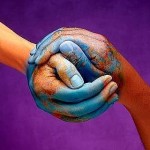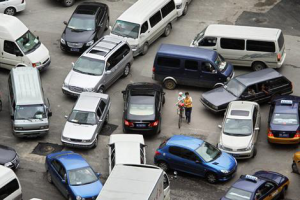In 2004, I had a once-in-a-lifetime opportunity to travel to Cambodia, where I explored the country for two-plus weeks at my own pace. I flew on Korean Air for most of the way to Phnom Penh, and when I arrived at the ticket counter at Dulles Airport, a large group of high school-aged students were in front of me chatting about their trip to South Korea. It only took a minute to realize that they were on a mission trip: the girl standing next to me in line told an adult with the group that she was looking forward to the opportunity to introduce Korean Buddhists to Jesus Christ.
Earlier that summer, I had read about the violent persecution of Buddhists in South Korea at the hands of fundamentalist Christians. Ancient temples were being burned to the ground while vandals were destroying statutes and other sacred items, all to rid the country of a religion that existed there since the 4th century CE. While the situation has improved somewhat since 2004, the persecution (and the temple burnings) continue today.
To be clear, it was immediately obvious that this group of eager, clean-cut suburbanites were not flying 7,000 miles to foster violence between Christians and Buddhists…but still, as we made our way to the plane and the flew together to Incheon, I couldn’t help but to contemplate – deeply – the impact of having foreigners arrive in a country for the express purpose of converting people away from indigenous beliefs. As I traveled through urban and rural areas of Cambodia, these thoughts remained in my mind.
With that bit of back story, I offer this letter from Tibet, as posted to social media this afternoon on the English-language site of VOA’s Tibetan service. I don’t know the author, but his words reached a bit into my soul as I am a personal beneficiary of the Tibetan wisdom culture that is rapidly disappearing from the face of the Earth. At the core of his letter is an ancient, universal message that is as old as human civilization – to quote Confucius, “Never impose on others what you would not choose for yourself” – also known as the Golden Rule.
(A letter from Tibet)
To all missionaries of any kind, to all those whose desire is to turn Tibetans away from Buddhism:
This letter is not a refusal of your religion, but an expression of concern that the Tibetan people have. As most of you probably are aware, our people’s customs and culture have been threatened from many different sides. We as a people deeply believe that if you take our religion then you take our people. Tibetan and Buddhism are inseparable words, intertwined like elements combined into a compound, truly inseparable.
Have you ever been to a Tibetan place, seen Tibetan people in their own context? From the moment we awake in the morning we offer incense to our Gods. Buddhism is interlaced in the language we speak, the dances we dance, the script we write, even the decorations in our house. Tibetans and Buddhism are one.
If this is hard to understand, please look at the situation in this way. Shed your prejudices, step outside of yourself and put yourself in our place. If strangers were to come and try to change your religion, your customs, and your way of living, how would you react? What would you think? You probably wouldn’t be very excited about that.
As you believe that your ways are best, we also believe that our ways are best. like you, we also desire for people to follow the ways of the Buddha, but we believe people should truly understand the concepts and reasons before they make that decision.
It’s a curious idea that you have. My question to you is, if you believe your religion is good and infallible then why do you come to the poor and unlearned to spread your ideas. Why not go to those of high intellect and the rich? Why don’t you try to get scientists to follow your Gods?
Let us learn from each other. We are glad that you understand yourselves, but please try to understand us as a people before you decide to destroy us as a people. Please understand that, when you try to convert our people the result is a great loss of unity among Tibetans. We want to stay Tibetan. Please respect us, our religion, and our culture as we respect you, your religion, and your culture.
– by Achok Tsering, Amdo Labrang (located in today’s Qinghai Province, China)


